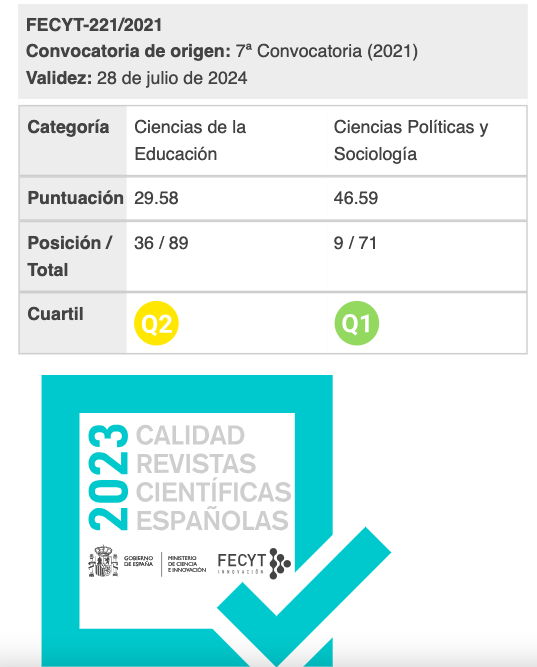Investigating Relationship among Research Self-Efficacy, Research Outcome Expectation, and Research Interest of Cambodian Faculty: Testing Social-Cognitive Theory
Keywords:
Downloads
Abstract
Social-Cognitive Theory has been used in a number of previous studies centered on research interest. A key angle of this theory seeks to test if faculty who believe they have ability and skills to accomplish research tasks effectively (i.e. having high research self-efficacy) and those who anticipate meaningful outputs from engaging in those research activities (i.e. having high research outcome expectation) are more likely to hold persistent interest in research works. Based on this theoretical framework and with the purpose to bring the current research practices in a developing context of higher education into discussion, this study set out to examine to what extent research self-efficacy and research outcome expectation predict research interest of Cambodian faculty. Participants in the study were 453 faculty members from ten major universities in the country. The main analyses were conducted using Hierarchical Multiple Linear Regression. The study detected that three blocks of independent variables (i.e. controlled personal and professional background variables, research self-efficacy, and research outcome expectation) explained about 37% of variances in research interest, with research self-efficacy accounting for the highest percentage of the total explained variances. Yet, the interaction effect of the research self-efficacy and research outcome expectation on research interest was not statistically significant. With terminal degree countries and disciplines as moderators, further moderation analyses indicated that the effect of research self-efficacy and research outcome expectation on research interest did not vary across disciplines and across places where participants obtained their terminal degree. Through these empirical analyses, this article offered some constructive thoughts on the current practices and policies of research culture building in the studied context.
Downloads
References
Bard, C. C., Bieschke, K. J., Herbert, T. J., & Eberz, A. B. (2000). Predicting research interest among rehabilitation counseling students and faculty. RCB, 44(1), 48–55.
Google Scholar CrossrefBieschke, J. K., Herbert, T, J., & Bard, C. (1998). Using a social cognitive model to explain research productivity among rehabilitation counselor education faculty. Rehabilitation Educaiton, 12(1), 1–6.
Google Scholar CrossrefBishop, M. R., & Bieschke, J. K. (1998). Applying social cognitive theory to interest in research among counseling psychology doctoral students: A path analysis. Journal of Counseling Pschology, 45(2), 182–188.
Google Scholar CrossrefChen, Y., Gupta, A., & Hoshower, L. (2006). Factors that motivate business faculty to conduct research: An expectancy theory analysis. Journal of Education for Business, 179–189.
Google Scholar CrossrefChen, C., Sok, P., & Sok, K. (2007). Benchmarking potential factors leading to education quality: A study of Cambodian higher education. Quality Assurance in Education, 15(2), 128–148.
Google Scholar CrossrefDelamont, S. & Atkinson, P. (2004). Successful Research Careers. Berkshire: Open University Press.
Google Scholar CrossrefGalassi, P. J., Brooks, L., Stoltz, F. R., & Trexler, A. K. (1986). Research training environments and student productivity: An exploratory study. The Counseling Psychologist, 14(1), 31–36.
Google Scholar CrossrefGelso, C. J., Mallinckrodt, B., & Judge, A. B. (1996). Research training environment, attitudes towards research, and research self-efficacy: The revised Research Training Environment Scale. The Counseling Psychologist, 24, 304–322.
Google Scholar CrossrefKanh, J. H., & Scott, N. A. (1997). Predictors of research productivity and science-related career goals among counseling psychology graduate students. The Counseling Psychologist, 25, 38–67.
Google Scholar CrossrefKwok, K. W., Chan, S., Heng, C., Kim, S., Neth, B., & Thon, V. (2010). Scoping study: Research capacities of Cambodia's universities. Phnom Penh: CDRI.
Google Scholar CrossrefLambie, W. G., & Vaccaro, N. (2011). Doctoral counselor educaiton students’ levels o research self-efficacy, perceptions of the research training environment, and interest in research. Counselor Education & Supervision, 50, 234–258.
Google Scholar CrossrefLent, W. R., Brown, D. S. & Hackett, G. (1994). Towards a unifying social cognitive theory of career and academic interest, choice, and performance. Journal of Vocational Behavior, 45. 79–122.
Google Scholar CrossrefPhillips, J. C., & Russell, R. K. (1994). Research self-efficacy, the research training environment, and research productivity among graduate students in counseling psychology. The Counseling Psychologist, 22(4), 628–641.
Google Scholar CrossrefRamsden, P. (1999). Predicting institutional research performance from published indicators: A test of a classification of Australian university types. Higher Education, 37(4), 341–358.
Google Scholar CrossrefRezaei, M., & Zamani-Miandashti, N. (2013). The relationship between research self-efficacy, research anxiety and attitude towards research: A study of agricultural graduate students. Journal of Educational and Instructional Studies in the World, 3(4), 69–78.
Google Scholar CrossrefSam, R., Zain, A. N., & Jamil, H. (2012). Cambodia's higher education development in historical perspectives (1863-2012). International Journal of Learning & Development, 2(2), 224–241.
Google Scholar CrossrefSanyal, B. C., & Varghese, N. V. (2006). Research capacity of the higher education sector in developing countries. Interntional Institute for Educational Planning, 1–12.
Google Scholar CrossrefTan, C., & Kaur, S. (2012). Partnering and alliances in higher education [Monograph]. Higher Education Research Monograph, 17, 103–134.
Google Scholar CrossrefTien, F. F. (2007). Faculty research behavior and career incentives: The case of Taiwan. International Journal of Educational Development, 27, 4–17.
Google Scholar CrossrefUn, L., & Sok, S. (2014). Higher education governance in Cambodia. Leadership and Governance in Higher Education, 4, 72–94.
Google Scholar CrossrefVaccaro, N. (2009). The Relationship between Research Self-Efficacy, Perceptions of the Research Training Environment and Interest in Research in Counselor Education Doctoral Students: An Ex-Post-Facto, Cross-Sectional Correlational Investigation. PhD dissertation. University of Central Florida.
Google Scholar CrossrefWood, R., & Bandura, A. (1989). Social cognitive theory of organizational management. Academy of Management Review, 14(3), 361–384.
Google Scholar CrossrefDownloads
Published
Almetric
Dimensions
How to Cite
Issue
Section
License
All articles are published under Creative Commons copyright (CC BY). Authors hold the copyright and retain publishing rights without restrictions, but authors allow anyone to download, reuse, reprint, modify, distribute, and/or copy articles as the original source is cited.















